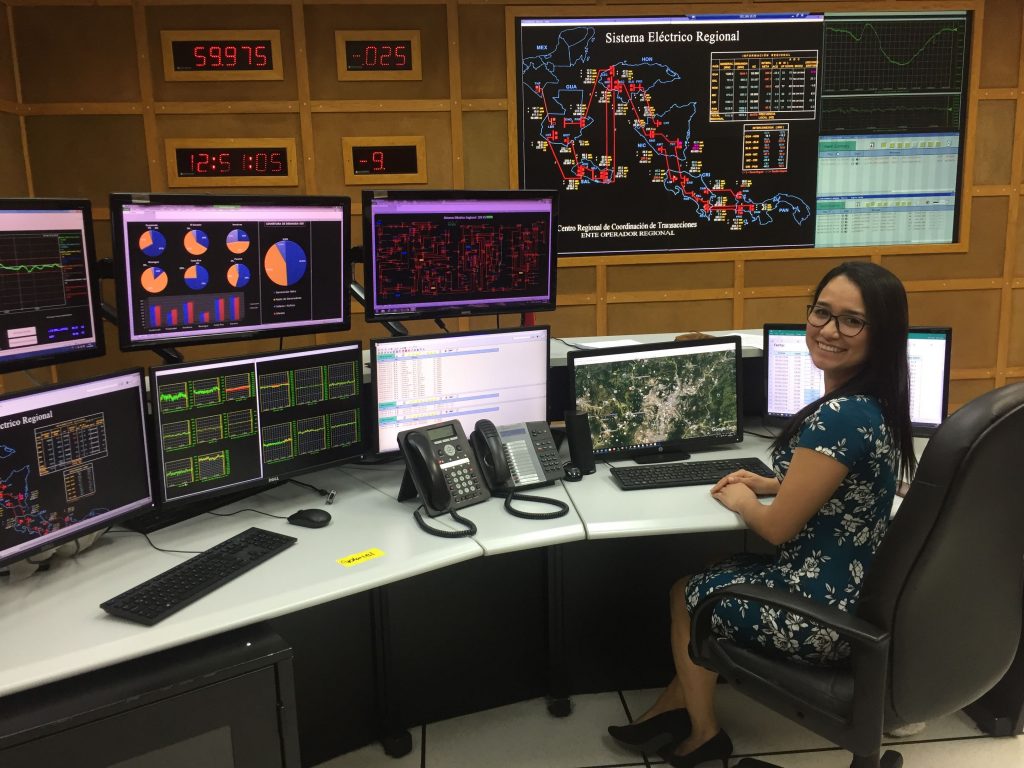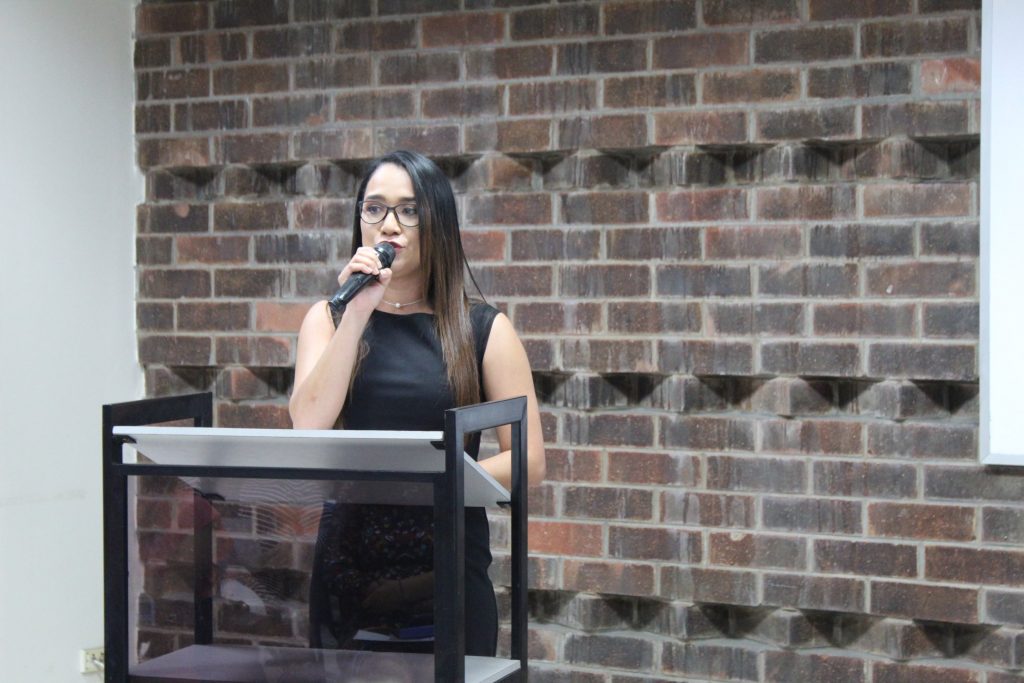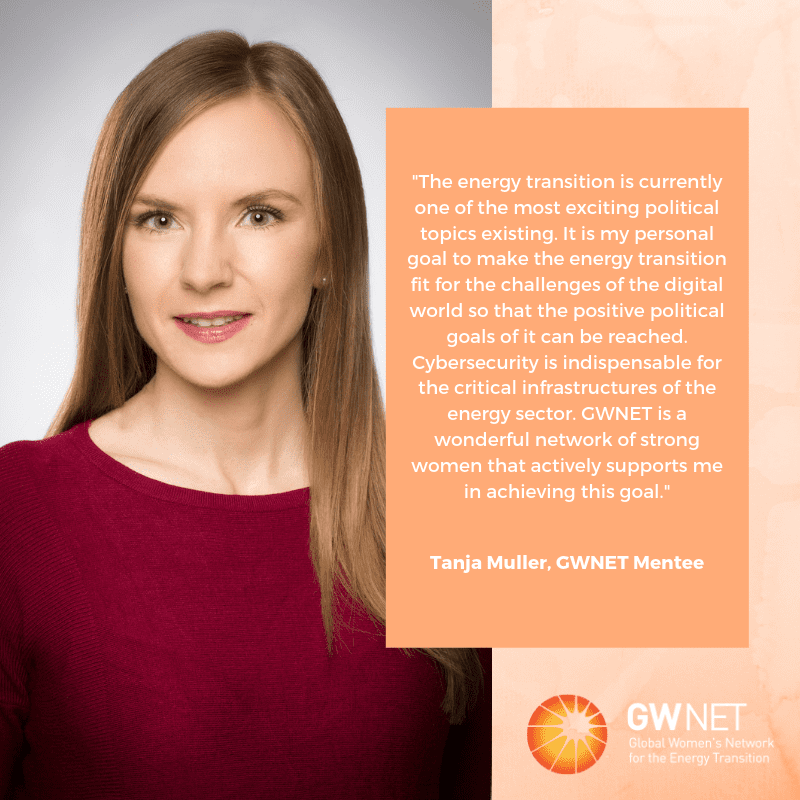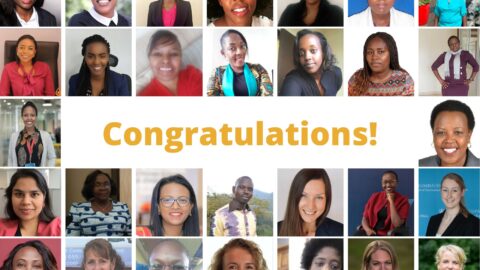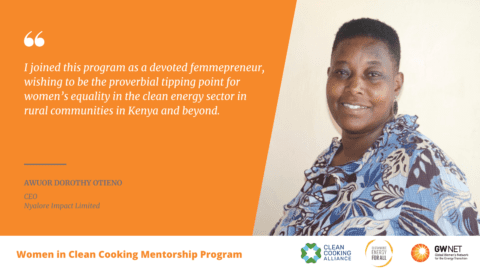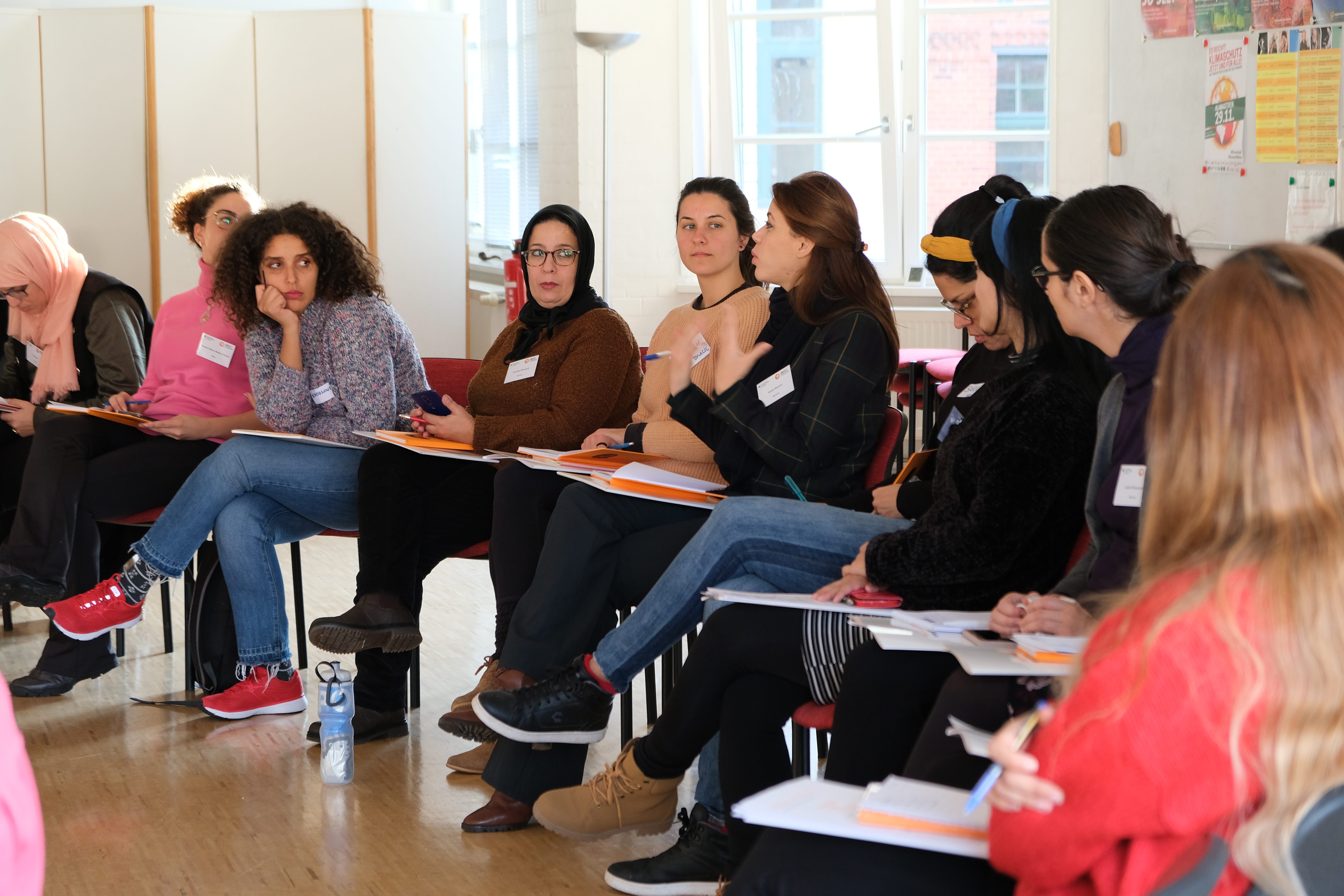GWNET brings you the 9th instalment of the “Meet the Women in the Energy Transition” series which celebrates the work and achievements of the women who are part of GWNET’s 2/2019 Mentoring Programme. This mentoring programme contains 22 mentee-mentor tandems, with mentees from over 15 countries. Meet GWNET mentee, Silvia Chacón. Silvia graduated from Universidad Centroamericana Jose Simeon Canas of El Salvador in 2017 as an electrical engineer, and since then she has worked at the Regional Electricity Market Operator (EOR) of Central America as an energy programming analyst. She represented El Salvador in a fellowship programme on sustainable energy development, renewable energy, ecological management of energy resources and energy efficiency held in Moscow, Russia in October 2018.
1) Tell us a little about yourself. What do you love most about what you do?
I am an electrical engineer who works as an energy programming analyst. I am part of the team responsible for programming the energy that is exchanged between Central American countries i.e. the day-ahead hourly programme for exporting and importing energy to and from each participating country. This process optimises the social benefit in the region in a way that is technically and regulatory feasible. What I love most about my work is the social benefits experienced by all the countries involved as well as the collaboration between these countries that makes them all equally important. In addition, this process ensures economic dispatch at the most optimal price possible which is an advantage for a variety of renewable energies, given that many have lower production costs.
2) What were your goals when you started working in sustainable energy? Have these evolved?
My goal used to be to work in communities and provide renewables energies as a means for income and a better quality of life. When I started working as an energy programming analyst at the Regional Operator Entity, my goal evolved and grew because now the whole Central American region benefits from my work. In the upcoming months, I’ll have the opportunity to study a master’s degree in electrical power systems and its automatisation at Shanghai Jiao Tong University, in Shanghai city, China. My research will focus on smart grids operation of renewable energy, electric markets and low carbon integrated energy systems. I am looking forward to studying a programme that equips me with the knowledge and skills to join the decision-makers who will help drive the new energy revolution.
3) What are the opportunities for sustainable energy growth in your country?
Actually, there are many initiatives and projects in progress that will increase generation through renewable energies, for that reason, stakeholders such as investors and institutions in the electric sector (operators, policymakers and regulators) will work to improve all power systems. For instance, in the coming years, the first eolic (wind) park will be installed with a capacity of 54 MW. Other examples include the interest and potential to install two new geothermic plants and also many photovoltaic panels at the distribution level. The energy transition that El Salvador is facing will be long and will require a lot of work from specialists, showing that there are many opportunities for sustainable energy professionals.
4) What challenges have you faced in the sector? Can you tell us how you overcame (or are overcoming) these challenges?
My principal challenge is a work-life balance. I’m a person with different interests such as dance, extreme sport, music and education. Sometimes I find it difficult to balance work and other activities, and often I have no time to be with family and friends. I’m facing a lack of time due to my work responsibilities, since I have to be available after office hours in case of a re-dispatch of regional energy programming, furthermore, sometimes I work on the weekends and holidays. For these reasons, I always try to involve my friends and family in my activities, so that I can spend time with them while also learning new things together.
5) Why did you join the GWNET Mentorship Programme? What do you hope to achieve?
I joined the programme because GWNET is made up of people with great experience and success in the field of energy; the inspiration that these people share is invaluable for my personal and professional growth. Furthermore, the GWNET programme allows me to play a more active role in the community, also, through the mentorship programme, I will be able to support and motivate other women in the energy field, hence helping expand the use of sustainable energy.
6) What advice would you give to women hoping to join the sustainable energy sector?
The best tool that we have is education, I advise all women who want to be part of the sustainable energy sector to prepare and keep studying and investigating. In this way, they will have the skills to contribute to this movement. Also, it is important to look for experts that can help and guide you; the GWNET mentoring programme is a good opportunity for this.
If you are interested in knowing more about GWNET’s mentoring programmes, this comprehensive article outlines our work in this area.


